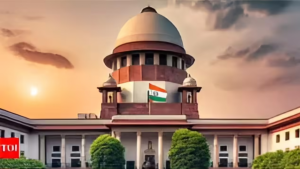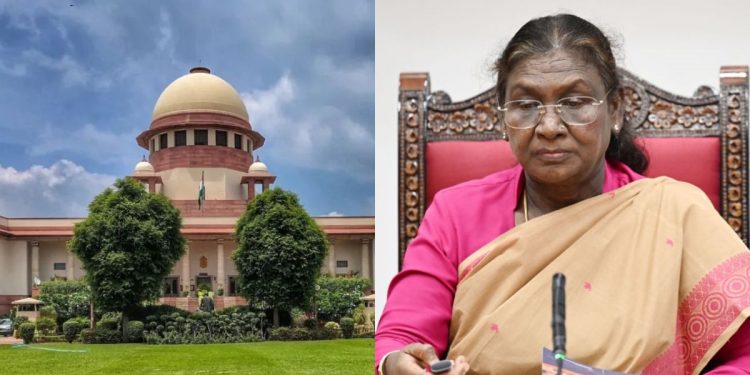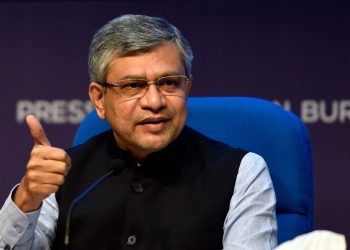The Supreme Court ruled on Thursday, that a Governor retains the authority to send a bill for Presidential consideration even after the state legislature has reconsidered it and sent it back in either its revised or original form.
A five judge Constitution Bench led by Chief Justice B R Gavai explained, that under the first proviso to Article 200, a Governor initially has three choices to approve the bill to withhold and return it with recommendations or to reserve it for the President.
The judges noted that this discretionary power at the first stage is crucial for opening a constructive constitutional exchange between institutions.
The Bench which also included Justices Surya Kant Vikram Nath, P S Narasimha and A S Chandurkar emphasised that the first proviso cannot be interpreted as removing the Governor’s power to reserve a bill, after it is returned. Once the legislature reconsiders the bill the Governor is left with two options to approve the bill or to refer it to the President regardless of whether the bill has been altered or left unchanged. The court observed that the second proviso to Article 200 reinforces this position by directing that if the Governor believes a bill may diminish the authority of the High Court or threaten its role within the constitutional structure the bill must be reserved for Presidential review.
The court observed that the second proviso to Article 200 reinforces this position by directing that if the Governor believes a bill may diminish the authority of the High Court or threaten its role within the constitutional structure the bill must be reserved for Presidential review.
While analysing the scope of the Governor’s authority after a bill is reconsidered, the court clarified that the instruction in the first proviso stating that the Governor shall not withhold assent applies only to the option of withholding. It does not restrict the Governor’s authority to either approve or reserve the bill. The court rejected arguments that the Governor is compelled to grant assent once the bill returns from the legislature. According to the judges, such a reading contradicts, the second proviso which specifically allows the President to examine bills that may affect the High Court’s constitutional position.
The Bench concluded that acknowledging both options, granting assent or reserving the bill encourages, a healthy consultative dialogue between constitutional bodies, aligning with the cooperative principles inherent in India’s constitutional design.
On the issue of federalism, the court stated that state legislatures have the right to shape policy within the boundaries set by the Constitution. It would undermine federal principles to allow a Governor to permanently block a bill without first engaging in the constitutionally mandated dialogue under Article 200.
The judgment added that the first proviso, which triggers communication between the Governor and the legislature and the authority to reserve a bill under the main part of Article 200 together, represent the collaborative spirit of Indian federalism. These mechanisms reflect the checks and balances that the Constitution expects institutions to follow. The court underscored that constitutional functioning should prioritize dialogue resolution and balance rather than obstruction.
Article 200 outlines how Governors manage bills passed by state legislatures. They may approve the bill withhold it return it with recommendations or reserve it for Presidential decision.
The Supreme Court delivered this interpretation in response to a Presidential Reference submitted by President Droupadi Murmu under Article 143(1). The President sought clarity on whether courts could impose time limits on the exercise of discretion by constitutional authorities while dealing with bills passed by state assemblies.







Discussion about this post